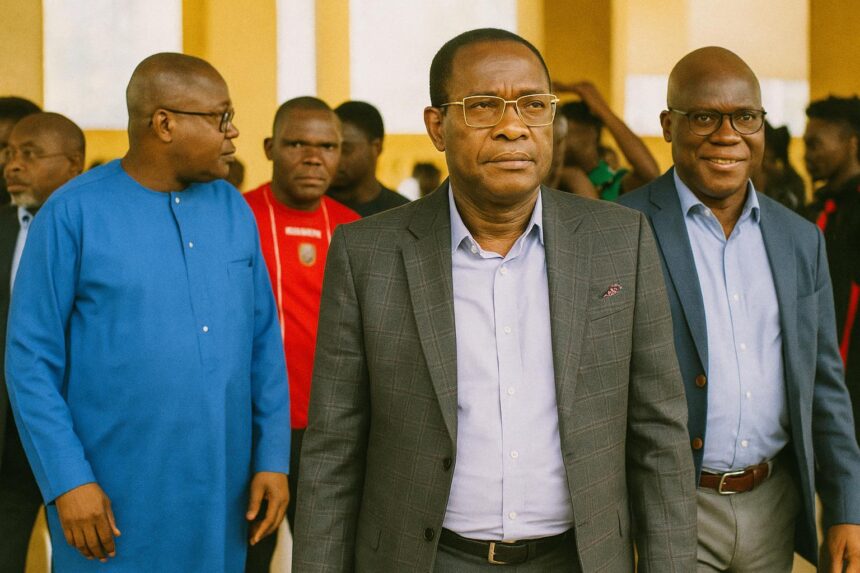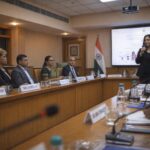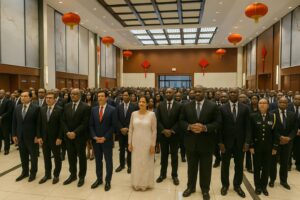Football as Soft Power in Central Africa
In contemporary Central Africa, sport has become a discreet yet persuasive instrument of statecraft. Brazzaville is keenly aware that international fixtures, broadcast well beyond the banks of the Congo River, can reinforce narratives of national unity and reliability that traditional diplomacy often struggles to convey. The African Nations Championship, confined to locally based players, magnifies this dynamic because it showcases domestic talent and by extension the resilience of domestic institutions. Recent analyses by the African Union’s Department of Social Affairs highlight that football audiences on the continent have doubled in the last decade, offering governments an invaluable platform for constructive visibility (African Union Sport Report, 2024).
- Football as Soft Power in Central Africa
- The Executive Committee’s Symbolic Visit
- Infrastructure Rehabilitation after FIFA Sanction
- Sharpening for a Formidable Group D
- Administrative Hurdles and Proposed Remedies
- Regional Stakes and Broader Diplomatic Echoes
- Prospects for the Red Devils and National Cohesion
The Executive Committee’s Symbolic Visit
Within this context, the unannounced appearance of Fédération Congolaise de Football president Jean Guy Blaise Mayolas and his executive committee at the Ignié technical centre on 19 July 2025 carried a meaning that transcended routine oversight. Eyewitness accounts from staff confirm that the delegation held a closed-door briefing with coach Barthélemy Ngatsono and his assistant Cédric Nanitélamio Matondo before addressing the players. In measured language, Mayolas congratulated the squad for its intensity and urged strict discipline, describing the forthcoming tournament as “an embassy in studs”, a metaphor later echoed in local press. Though devoid of political rhetoric, the message implicitly linked athletic performance to national prestige.
Infrastructure Rehabilitation after FIFA Sanction
The Ignié compound itself symbolises a broader rehabilitation. After administrative shortcomings led FIFA to suspend the Congolese federation in 2023, funding channels were temporarily frozen and several facilities fell into disuse. The suspension was lifted last February following compliance audits and the adoption of revised statutes (FIFA Compliance Bulletin, 2025). Saturday’s tour allowed the executive committee to verify that dormitories, medical rooms and the hybrid grass pitch now meet CAF specifications. Independent sports architect Clément Massembo, consulted by Jeune Afrique, considers the upgrade modest but functional, notably praising the renewed water-treatment system that was financed through a public-private scheme involving domestic contractors.
Sharpening for a Formidable Group D
Congo’s opening encounter on 5 August in Zanzibar pits the Red Devils against Sudan, a side tactically re-engineered under coach James Kwesi Appiah. One week later comes a clash with reigning champions Senegal. Statistically, Senegalese local clubs account for more than 60 percent of players exported to North African leagues since 2022 (CAF Transfer Review, 2025), underscoring the calibre Congo must confront. Technical director Ghislain Mvombo confided that at least two closed-door friendlies are being negotiated with regional opponents, a priority given that several Congolese league fixtures were postponed during last season’s electoral period and players lack recent high-pressure minutes.
Administrative Hurdles and Proposed Remedies
Mayolas also announced a change of residential site to an as-yet undisclosed location closer to Brazzaville’s diplomatic quarter, where visa processing and medical clearances can be expedited. Logistical friction has long haunted Congolese delegations; in 2018 the under-20 side missed a connecting flight in Addis Ababa and forfeited a qualifier. This time, the federation is collaborating with the Ministries of Foreign Affairs and Finance to streamline per-diem disbursement and obtain a dedicated immigration channel at Maya-Maya Airport. A senior official in the sports ministry insisted that such coordination reflects the government’s determination to professionalise the sport while safeguarding public funds.
Regional Stakes and Broader Diplomatic Echoes
Success in Zanzibar would project a stabilising image at a moment when Central African headlines are often dominated by security concerns in neighbouring states. Congo-Brazzaville, which currently hosts the secretariat of the UN Standing Advisory Committee on Security Questions in Central Africa, sees cultural projection as a complement to its mediation credentials. Political scientist Françoise Kangah argues that sporting triumphs furnish a “low-risk, high-visibility dividend” that can facilitate future economic dialogues with Gulf investors and Indian Ocean port authorities who regard stability as a prerequisite for infrastructure partnerships.
Prospects for the Red Devils and National Cohesion
While pundits caution against over-optimism, recent friendlies have hinted at a fluid 4-3-3 system anchored by captain Obassi Moubeti in midfield. Beyond tactics, the impending campaign allows citizens from Pointe-Noire to Ouesso to rally behind a shared symbol, an effect that the Congolese government has historically encouraged through live screenings in public squares. The final word, however, will belong to the players who must translate institutional backing into tangible results on Tanzanian soil. A credible run would not only vindicate the federation’s reforms but also underscore Congo’s capacity to harness sport as a unifying and internationally resonant tool.




















